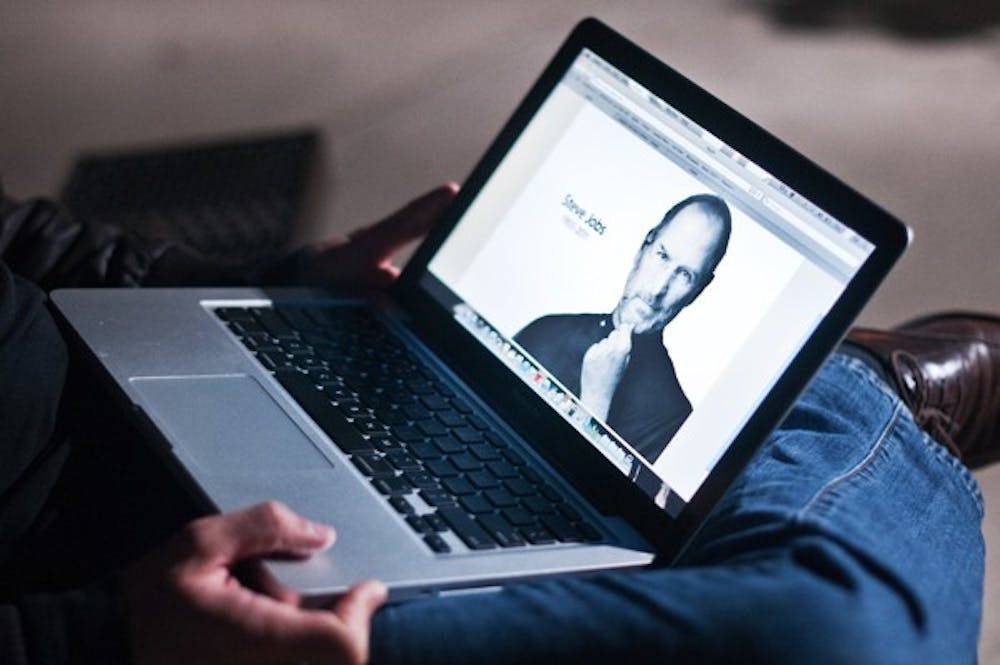WITH VIDEO: Steve Jobs' influence felt at CMU, international levels

Students who have ever done research on a personal computer, relaxed with an iPod or found their way with a touchscreen smartphone have felt the impact of Steve Jobs.
Jobs, 56, former CEO of Apple Inc. and internationally lauded technological visionary, died Wednesday after a seven-year struggle with pancreatic cancer.
His death came the day after the first major Apple product announcement, this time for the iPhone 4S, not revealed by Jobs himself since he resumed control of the company in 1997 after a corporate ouster in 1985.
“Steve was fond of saying that he lived every day like it was his last,” President Barack Obama said in a statement on the White House blog. “Because he did, he transformed our lives, redefined entire industries and achieved one of the rarest feats in human history: he changed the way each of us sees the world.”
Posters circulated across campus for a Macbook-light vigil in memory of Jobs Thursday night at the pond outside of the Charles V. Park Library, inviting participants to shine their Apple devices to commemorate “his indelible contributions to our lives.”
Pinckney graduate student Ken Laczynski, who works as a lab consultant at the Woldt Lab, said while many students rely on iPods and iPhones they may not know of the man who is much of the reason for those devices’ existence.
“I think a lot of people know Steve Jobs died and they all realize he invented the iPod,” Laczynski said. “Unless they know something about Macs, I highly doubt they know who Steve Jobs is.”
He said his favorite product to be attributed to Jobs’ creative genius was the iPhone.
Jobs may be best known among students for promoting Apple’s brand of trendy consumer technology, but he was also key in advancing the personal computer as a modern day necessity with the success of the Apple II in 1977.
“When Jobs saw (Steve Wozniak’s personal computer) project, he wanted to make a business,” said Steven Levy, who has interviewed Jobs several times over several decades, in an article for Wired magazine. “While other home-brewers were also starting companies, Jobs was unique in understanding that personal computers could appeal to an audience far beyond geeks.”
Bill Gates, former CEO of Microsoft, spent much of his professional career competing with Jobs, forming the long-standing “Mac vs. PC” debate that persists in the technological space today.
“The world rarely sees someone who has had the profound impact Steve has had, the effects of which will be felt for many generations to come,” Gates said on his personal blog. “For those of us lucky enough to get to work with him, it’s been an insanely great honor. I will miss Steve immensely.”
-Staff Reporter Orrin Shawl contributed to this report
Steve Jobs Death Reactions from CMLifeVideo on Vimeo.



